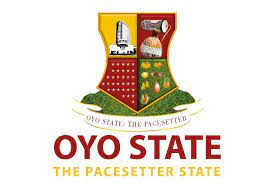Economy
Subsidy Removal: FCT Residents Want Govt to Increase Purchasing Power of Workers

As the removal of fuel subsidy continues to negatively impact Nigerians, residents of the Federal Capital Territory (FCT) say there is a need for government to increase their purchasing power.
The residents said this in an interview in Abuja on Sunday.
Some residents said most of their income was spent on buying fuel, leaving them with very little to meet other needs.
NAN reports that President Bola Tinubu announced the removal of fuel subsidy on May 29 while delivering his inaugural speech.
After the president made the announcement, the price of petrol shot up from N195 per litre and currently sells for between N637 and N660.
The recent Petrol Price Watch for October 2023 released by the National Bureau of Statistics (NBS) said the average retail price of a litre of petrol increased from N195.
29 in October 2022 to N630.63 in October 2023.The NBS said the October 2023 price of N630.63 represented a 222.92 per cent increase over the price of N195.29 recorded in October 2022.
The increase in the price of petrol has caused a hike in the prices of food items, transportation, and goods and services across the country.
Joanna Madu, a public servant said the removal of subsidy was consuming most of her salary which had become insufficient, describing the situation as unsustainable.
“It has not been easy with the removal of fuel subsidy. Before the removal, N5, 000 fuel could last me for three days but now that N5, 000 is like buying N1,000 fuel.
“So for two days, I need to buy N12,000 fuel. By the time I come from Karu to town, and do some moving around, I need to buy fuel the next day. This is not sustainable.
“It is not like the salary of government workers has increased. Fuel subsidy has made it so that my salary is not enough for me, and fuel is consuming almost all my salary.
“The government needs to do something. Nigerians are really suffering, everywhere you go people are complaining and it has affected the price of everything,” she said.
Tinuke Afolabi, a civil servant said the removal of fuel subsidy had made it impossible for her to save and afford some of her needs
Afolabi said the government needed to increase the salaries of workers as a way to alleviate the impact of the fuel subsidy removal.
“I earn N140,000 monthly and I use almost N80,000 to buy fuel in a month. What is left for me to save after buying food which is on the increase every day, and paying for light, water, and other bills.
“I am surviving by the grace of God. One cannot even live a good life anymore because the quality of the lives of Nigerians is deteriorating.
“People cannot afford to buy good food. This festive season will be dry for many Nigerians,” she said
Mr Emma Attah, a public servant, said the removal of fuel subsidy was having a psychological impact on relationships.
Attah said that the government needed to increase the purchasing power of Nigerians by indexing the salaries of workers, that is increasing their salaries.
“People are so frustrated that they have to pay double for commercial transport that they are not even considering the driver who needs to buy the fuel at such a high rate.
“Imagine a family of five, like mine, I have water, electricity, and health bills; there are school fees, house rent, and most importantly feeding costs. How does one cope after spending almost all the income on just fuel?
“In other countries of the world, when prices increase, the government indexes the salaries of workers, that is, increases the salaries of workers.
” In Nigeria where there is serious inflation, the government is supposed to increase the salaries of workers to align with the present reality caused by subsidy removal.
He said the government needed to be sensitive to the plight of citizens and ensure the welfare of Nigerians.
“It is not about palliatives, after using palliatives for a few days, what happens next?
“Government should increase the purchasing power and index the salaries of Nigerians so our quality of life does not continue to nose dive,” he said.
Ngozi John, a trader, who said the removal of fuel subsidy had affected the prices of food items, added that many of her customers could not afford to buy in large quantities.
“Before, some of my customers would buy in baskets, or mudus now they say they cannot afford it. So they buy a half basket, half mudu while some buy in very little quantity.
“I thought with the festive season, sales would be better but it is not so. My customers are complaining that there is no money. The whole thing is affecting all of us, she said. ”
Francis Chukwuma said the removal of the subsidy had affected his business and made him adjust his budget on other items.
“The removal of the fuel subsidy made me adjust a lot of things so that I can fuel my car, any budget I am doing is fuel that is the priority.
“It is affecting me but I cannot do without fuel. I need my car to move around because of the nature of my work and to fuel my generator in the office because of the poor power situation in my area.
“The little profit I make I use most of it for fuel, so I have little to take home to my family for other expenses. We know the prices of everything have gone up, especially food which is on a steady increase.
“This situation with the subsidy cannot be sustained, Nigerians are barely surviving, the government should put things in place, like cheaper transport, and ensure there is power for businesses to operate.
“Imagine people paying so much to transport themselves to work and when they get to work, no light to work, no money to buy fuel, It is disheartening, ” he said.
Nancy Benjamin, a retired civil servant, said retirees have been suffering for a long time and the removal of fuel subsidy had only worsened their plight.
Benjamin said many retirees could not afford to treat themselves when they had health issues leading to the death of many of them
She called on the government to be more sympathetic to retirees plight having served the country for years.
“In developed countries, the welfare of the retired and elderly are taken care of. Why can’t the government look into our welfare? The government can give us subsidised health care and free transportation.
“These are things that can help us so we can channel our pension to things like feeding, as the cost of food items also is on the increase. Many retirees still have children in school too,” she said. (NAN)
Economy
SEC Advocates Advanced Financial Inclusion by 2030

By Tony Obiechina, Abuja
The Securities and Exchange Commission (SEC) has stressed the need for Nigeria to harness its demographic dividend to advance financial inclusion through investments by 2030 for national survival or face deepening inequality.
The Director-General of the SEC, Dr Emomotimi Agama said this at the United Capital Asset Management Investment forum on Wednesday in Lagos.
Agama, in his keynote address titled: “Advancing Financial Inclusion through Investments: Bridging
Nigeria’s Knowledge and Wealth Gap,” said Nigeria must harness its demographic dividend to boost investment.
“Our theme, Advancing Financial Inclusion through Investments, is not aspirational; it is foundational to national survival.
“We stand at a pivotal moment. By 2030, Nigeria can either harness its demographic dividend or face deepening inequality. The knowledge-wealth gap is not merely an economic challenge; it is a moral imperative,” Agama said.
He said the term inclusion should be reframed as active financial involvement, where access meets empowerment, and capital becomes a tool for transformation.
Agama said that closing the financial inclusion gender gap could lift 700,000 Nigerians from poverty.
He said, “Nigeria has a great population yet we have a tiny drop of this number of persons involved in the capital market.
“That one reason for poverty, because we are running from money. We have to do something. Our market capitalisation is an opportunity to do something,
We all have
“We need to change the narrative and move the market forward. We must reach out to make the difference. We are committed to protecting investors and developing the market. Our goal is to do the right thing no matter whose ox is gored. We will work by the principles of fairness and equity to change the market. We will provide a fair ground for everyone to aspire.
He noted that MTN Nigeria’s share offering drew 150,000 new investors – 75 per cent women, 85 per cent under 40.
Agama recommended a four-pillar strategy for bridging the gaps.
He listed the four-pillar strategy as democratisation of financial knowledge, catalyse MSME Investment Channels, blended Finance Vehicles: Partner with Bank of Industry (BOI) to de-risk loans for women-led SMEs.
“We need to educate people about finances. As we drive this market, we do so for a purpose, I enjoin everyone to be the disciple and the apostles. Getting this market to move is a deliberate action,” he added.
| ReplyReply allForwardAdd reaction |
Economy
NPA Assures of Over N1.27trn Revenue in 2025

By Ubong Ukpong, Abuja
The Nigerian Ports Authority (NPA) on Monday assured that it would take into the coffers massive revenue of over N1.27 trillion in 2025, representing a 40 percent increase from the N894.86 billion it realized in 2024.
This ambitious target, the Authority said, was anchored on sweeping modernization efforts, the full activation of the Dangote Refinery’s marine operations, and the deployment of cutting-edge technology to enhance port efficiency.
Managing Director of the NPA, Abubakar Dantsoho, disclosed this in a presentation during his agency’s budget defence session wih the House of Representatives Committee on Ports and Harbours, where he defended the agency’s 2025 budget estimates and provided insights into its 2024 performance.
“Our 2025 budget proposal is more than figures, it reflects our aspirations for a more efficient, globally competitive port system,” Dantsoho told lawmakers, adding that over 70% of the proposed expenditure will go into capital projects.
For 2024, the Authority surpassed its revenue target of N865.39 billion, posting an actual realization of N894.86 billion.
However, Dantsoho revealed that only N417.86 billion, less than half of the approved N850.92 billion expenditure, had been spent as of the time of reporting.
Despite this, NPA made a record contribution of N400.8 billion to the Consolidated Revenue Fund (CRF) in 2024, nearly double the N213.23 billion remitted in 2023. Of this amount, a staggering N344.7 billion was deducted at source.
“This shows our unwavering commitment to national revenue generation, even when our own operational liquidity is affected,” the NPA boss stressed.
Dantsoho said the projected revenue increase is premised on several key assumptions and developments, including: The full operation of the Dangote Refinery, which alone is expected to draw in over 600 vessels annually through its Single Point Mooring (SPM) system; the commissioning of upgraded terminals at WACT and OMT, which will enhance container traffic; the implementation of automation tools such as the National Single Window, Port Community System (PCS), and Vessel Traffic Management System (VTMS); and increased cargo volumes stemming from global disruptions, including the Russia-Ukraine conflict, which has affected global trade routes.
He said the 2025 revenue is expected to come from the following key sources: Ship Dues, N544.06 billion; Cargo Dues, N413.06 billion; Concession Fees, N249.69 billion; and Administrative Revenue, N73.07 billion
Of the proposed N1.14 trillion total expenditure for 2025, N778.46 billion is earmarked for capital projects.
This investment, he said, will target the revitalization of critical infrastructure, including the Calabar, Warri, and Burutu ports and channels, and enhance towage services, channel depth, and compliance with international security conventions.
“Investments in infrastructure and technology are non-negotiable if we are to stay competitive regionally and globally,” Dantsoho emphasized.
He cited increasing competition from neighboring ports and aging assets across Nigeria’s coastal corridors.
The NPA also intends to address technology gaps by upgrading legacy systems and bolstering cybersecurity, ensuring Nigerian ports meet global standards for digital operations.
“We can say that with timely access to internally generated revenue and capital funds NPA would deliver the kind of impact Nigeria expects,” he said.
Chairman of the Committee, Hon. Nnolim Nnaji, urged the NPA to ramp up performance, improve port infrastructure, and play a greater role in addressing Nigeria’s revenue and unemployment challenges.
Nnaji said the ports remain a critical pillar of Nigeria’s economy, and urged the agency to meet rising expectations despite operational challenges.
“No country can thrive economically without high-performing ports. They are the economic heartbeat of every nation, determining how buoyant a country is through the flow of imports and exports,” Hon Nnaji said.
The committee praised NPA for its performance.
Nnaji stressed that the NPA’s performance has implications beyond maritime activity, noting that increased port output can significantly boost job creation across several sectors.
“The Nigerian Ports Authority is not just a revenue-generating agency, it is a national asset in terms of employment and economic impact.
“We expect to see detailed strategies on how to improve revenue generation and expand employment opportunities through your 2025 budget,” he said.
The lawmaker also pointed to growing interest in the development of new ports across the country but cautioned against neglecting existing port infrastructure.
“As we welcome investment in new ports, we must not abandon the old ones. Maintaining and upgrading our existing ports, both in the Eastern Corridor and the Western axis, is essential to long-term sustainability,” he added.
The Committee called for a clear outline from the NPA on how its 2025 financial plan will address pressing national concerns and reaffirm Nigeria’s competitiveness in regional and global maritime trade.
Economy
Senate Sets N10trn Revenue Target for NCS, Urges Agency to Curb Smuggling, Illicit Drugs

By Eze Okechukwu, Abuja
The Senate, through its Committee on Customs has set a revenue target of N10 trillion for the Nigeria Customs Service for the 2025 fiscal year, instead of the initial N6.584 trillion given to her earlier on while urging the agency to clamp down on smuggling and Illicit drugs.
The Chairman of the Committee, Senator Isah Jibrin (Kogi East), who gave the agency the marching order yesterday in Abuja during the budget defence of the revenue driving agency however commended her for exceeding its 2024 revenue target of N5.
079 trillion.The NCS team led by Deputy Comptroller General, Jibo Bello who represented the Comptroller General presented the 2024 budget performance with a revenue target of N5.
079 trillion, stressing that the proposal was exceeded by over a trillion naira.The Committee, obviously impressed by the performance commended NCS before asking them to go ahead and present the 2025 budget proposal, which the agency tied at N6.584 trillion revenue target with an expenditure of N1.132 trillion.
Following their presentation, members of the Senate Committee on Customs unanimously approved the recommendation of the revenue target of N6.584 trillion and the expenditure of N1.132 trillion for the 2025 financial year.
The Committee will subsequently present the budget proposal to the Senate at plenary most likely this week as the red chamber resumes today after a long recess tied to Eid celebration.
In his final remarks, Senator Jibrin emphasised the need for the NCS to rise up in terms of its surveillance with respect to illicit drugs and smuggling “to ensure that, as much as possible, you should be on top of your game”.
He said there are so many illicit drugs flowing all over the place, which according to him “is contributing to the issue of banditry in Nigeria because most of these guys are on drugs. What I’m saying is that, in addition to your revenue drives, you should also be mindful of some of these other functions.




















